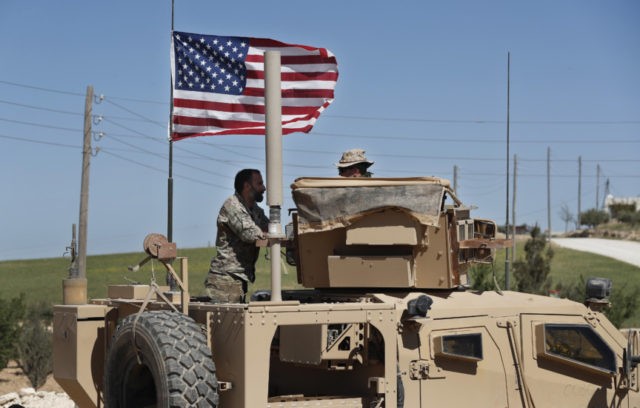Munich (Germany) (AFP) — Defence ministers from the US-led coalition fighting the Islamic State group meet on Friday in Munich to discuss how to reorganise in Syria after the defeat of the last pocket of jihadists and the departure of US troops.
Time is short: IS fighters are cornered by an Arab-Kurdish militia backed by the US in a last battle over the remaining patch of territory the militants control in northeastern Syria.
With defeat of IS’s self-declared “caliphate” imminent, American troops are set to withdraw from Kurdish-controlled areas, prompting a repositioning of the remaining players in the region.
Around 20 ministers including those from the US, France, Britain, and Germany will take part in the meeting, according to one source.
US forces are the largest contributors by far to the anti-IS coalition and their pullout will leave a vacuum in Syria where major powers are jostling for influence.
US President Donald Trump announced the pullout of around 2,000 US troops in December, stunning allies including France and Britain who warned the fight against jihadists was not finished.
“The withdrawal of the American troops from Syria will evidently be at the heart of discussions,” said French Armed Forces Minister Florence Parly.
“Once the so-called caliphate no longer has any territory, the international community will have to guarantee that there will be no resurgence of Daesh in Syria or elsewhere,” her ministry’s statement said, using the Arabic acronym for Islamic State.
The end of IS territory in Syria is heightening worries about experienced militants and foreign fighters escaping and forming new IS cells in Syria or beyond.
– Fate of Kurds –
Once American forces leave, another complication emerges: The future of areas in northern Syria controlled by Kurdish YPG forces, a key US ally in the fight against jihadists but a militia branded terrorists by Turkey.
Questions remain over whether Turkey will follow up on President Recep Tayyip Erdogan’s warnings Turkish forces may launch operations against the Kurds to curb their influence along Turkey’s frontier.
Istanbul and Washington have called for the creation of a “security zone” to separate YPG-controlled areas from the Turkish border as the US and Turkey increasingly align their positions.
As US forces leave, Syria’s government could also turn to allies Russia and Iran to regain influence in the Kurdish-controlled north.
But some analysts warn Trump’s over-reliance on Turkey once US troops leave could be complicated and not welcomed by other coalition allies.
“The brutal fact that will confront Trump is that Turkey’s military is not ready for an extensive presence throughout eastern Syria,” said Nicholas Heras, a Middle East fellow at the Center for a New American Security.
“Neither France nor the United Kingdom, which have their own forces in Syria, are keen on the idea of Turkish forces assuming responsibility for what the US forces currently do.”
– Observation force –
Acting Pentagon chief Patrick Shanahan said this week the US-led coalition had had several discussions to understand how to guarantee stability and security of the area and with what resources.
Washington’s suggestion of installing an observation force in a buffer zone in Syria’s north has the twin objectives of avoiding a Turkish assault on Kurdish forces and halting any jihadist resurgence.
“Clearly the coalition with its resources and capabilities is an option,” the acting Pentagon chief said. “It’s one that we are pursuing and at this stage it’s still being discussed.”
But without American troops on the ground, that option leaves doubts for Western coalition allies like France, which contributes about 1,200 forces in the region, including artillery and soldiers training Iraqi troops.
“It is totally out of the question to have French troops on the ground without the Americans there,” one French government source told AFP. “It’s just no.”
“Securing a buffer zone of an estimated 400 kilometres (250 miles) in length and 30 km in width would require around 20,000 troops,” said one high-ranking European military official.
Beyond Munich, the coalition’s decisions will also be closely followed by Ankara, Moscow and Tehran, whose presidents convened in Sochi on Thursday to discuss the consequences of the US plan to withdraw from Syria.
Russia and Iran — who both back the regime of Syria’s President Bashar al-Assad — and rebel supporter Turkey have positioned themselves as key foreign players in Syria’s long-running war.

COMMENTS
Please let us know if you're having issues with commenting.